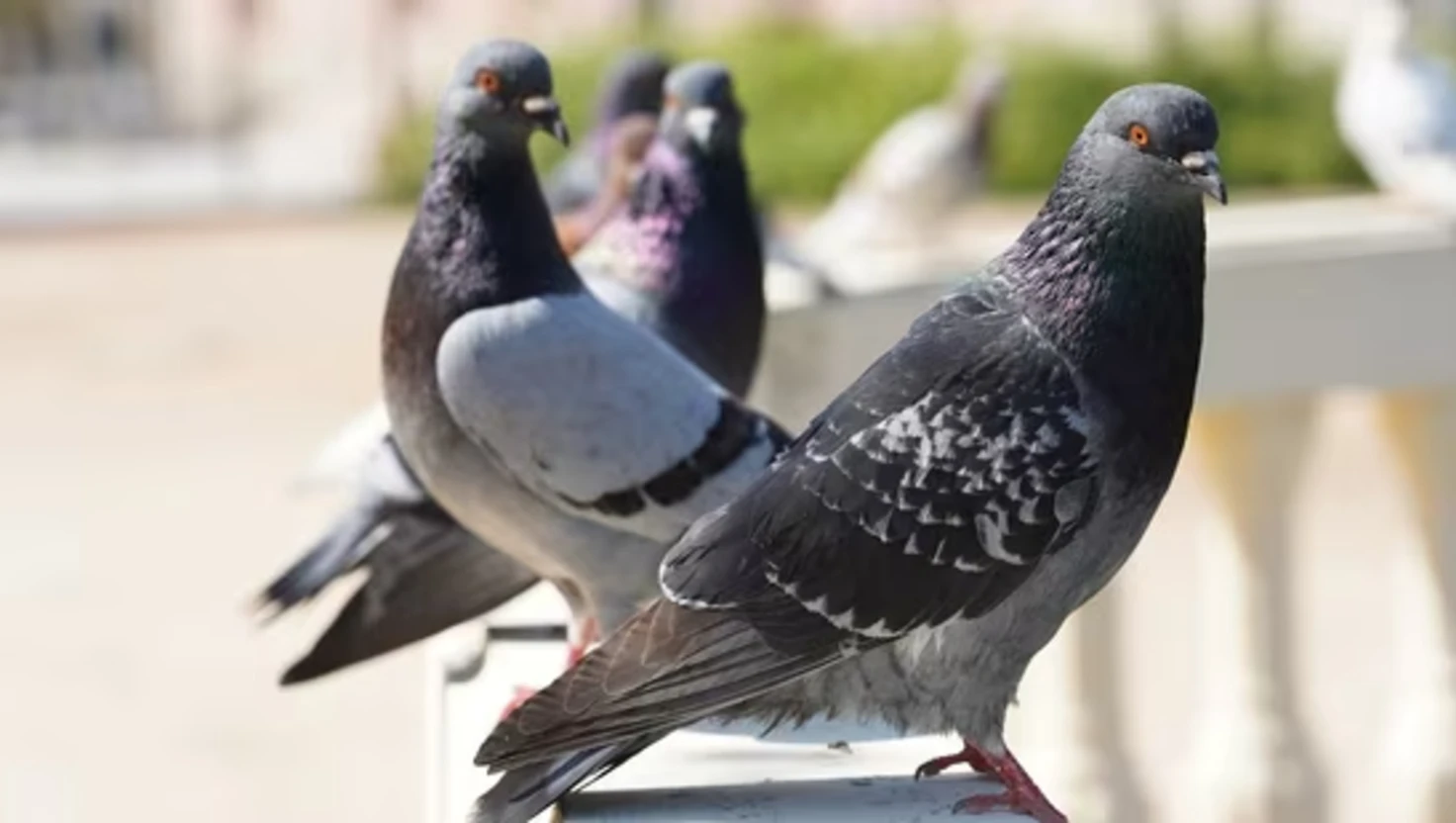Rising Health Risks from Pigeons in Indian Cities Highlighted

Rising Health Risks from Pigeons in Indian Cities Highlighted
Pulmonologists express concerns over health issues linked to pigeon droppings in Indian cities, urging precautionary measures for residents.
Health professionals in India are sounding alarms about the health hazards posed by pigeon droppings in urban areas, particularly cities like Delhi and Mumbai. They attribute an increase in respiratory illnesses to the fine dust contained in bird droppings and feathers. This spike in lung-related issues has raised the need for public awareness, especially among individuals frequently exposed to pigeons.
Health Concerns from Pigeon Exposure
In a recent interview with HT Lifestyle, Dr Ravindra Sanglikar, a consultant in pulmonology at KIMS Hospitals in Thane, explained that an increasing number of people are suffering respiratory problems due to ongoing contact with pigeons. He stated, "Every year, more and more Indians fall ill from repeated exposure to pigeons. The fine dust in droppings and feathers can lead to a condition known as hypersensitivity pneumonitis, which progressively damages lung tissue."
Dr Gunjan Chanchalani, director of critical care medicine at Wockhardt Hospitals in Mumbai Central, added that while many individuals regard pigeons as harmless urban companions, the health risks they pose should not be underestimated. She cautioned, "Pigeons may appear benign, but they can actually present serious health hazards. Though most healthy individuals are not affected, precautions are essential. Some people may experience flu-like symptoms, including cough, fever, chills, or difficulty in breathing after exposure. Prolonged contact can result in chronic conditions that lead to significant lung damage. If you experience persistent symptoms like fatigue or decreased exercise tolerance, consult a healthcare professional and inform them of any pigeon contact."
Symptoms and Diseases Associated with Pigeon Exposure
Dr Sanglikar further elaborated on the possible respiratory consequences of pigeon exposure. He noted that symptoms often go unnoticed and can easily be mistaken for asthma or allergies. Poorly recognised symptoms include recurring coughing, breathlessness, chest pain, and fatigue.
Among the diseases linked to pigeon exposure are:
Hypersensitivity pneumonitis (Bird fancier’s lung): Chronic exposure to pigeon feathers or droppings can trigger an immune system reaction, resulting in inflammation in the lungs that may lead to severe complications like lung fibrosis or required lung transplant. Symptoms can range from a dry cough to severe breathlessness at rest.
Fungal infections: In individuals with compromised immune systems, diseases such as histoplasmosis and cryptococcosis may develop from pigeon-related exposure.
Recommended Precautions
To minimise risks, Dr Sanglikar recommends adopting simple yet effective precautionary measures. "Wearing masks and gloves while cleaning areas where pigeons congregate is vital. Avoid dry sweeping, as it releases harmful dust particles; instead, dampen surfaces before cleaning. Keeping windows closed or installing fine-mesh screens can help prevent droppings and dust from entering homes. Additionally, it is important to discourage pigeons from nesting by eliminating food sources and closing off small gaps in roofs or ledges."
Dr Chanchalani also provided practical safety tips:
- Minimise Contact: Refrain from touching pigeon droppings or nests with bare hands.
- Cautious Cleaning: Always wet droppings before cleaning to avoid inhaling harmful dust.
- Prevent Pigeon Nesting: Use spikes or netting to deter pigeons from nesting on ledges or balcony areas.
- Use Personal Protective Equipment: Always wear gloves and a mask when cleaning areas where pigeons frequent. After cleaning, ensure that hands are thoroughly washed.
Conclusion
Medical professionals are increasingly concerned about the health implications of pigeon-related exposure in urban environments. Being informed about the risks and adopting preventive measures can significantly reduce the likelihood of developing respiratory health problems. Residents are encouraged to consult healthcare providers promptly if they experience any worrying symptoms related to pigeon exposure.

Reliance Retail acquires Kelvinator, The Coolest One
Reliance Retail has purchased the Kelvinator brand from Electrolux for nearly ₹160 crore, aiming to strengthen its position in India's consumer durables market.
| 2025-07-19

Saiyyara has shattered every myth about launching newcomers. No big names, no big PR
Madhur Bhandarkar praises debut film 'Saiyaara' for its raw talent and storytelling, marking a shift in Bollywood's approach to newcomers.
| 2025-07-19

India slams reports blaming pilots for Air India crash
India's AAIB disputes US media assertions regarding Air India AI 171 crash, highlighting ongoing investigation and sensitivity towards victims' families.
| 2025-07-18

India Secures Four-Wicket Win in ODI Series Opener Against England
India achieves a four-wicket victory over England in the ODI series opener, led by Deepti Sharma's unbeaten 62 runs.
| 2025-07-17

Air India inspection claims no problems found with Boeing 787 fuel control switches
Air India has conducted thorough inspections of its Boeing 787 fuel control switches, reporting no problems following a DGCA directive.
| 2025-07-17




